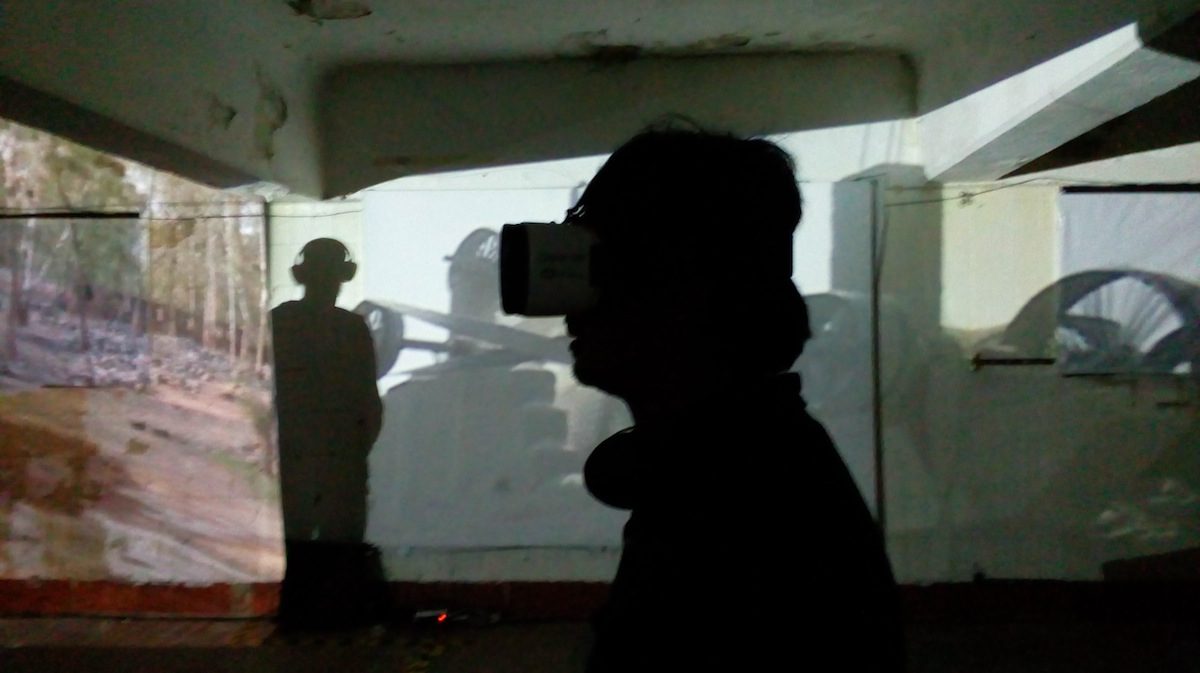The Open Call for the Social Art Award 2019 under the topic “We are the People – Peaceful Revolutions” was closed on December 15, 2019. We are very impressed by 558 submissions that were contributed by artists coming from 65 countries across all continents.
The winners of The Social Art Award 2019 are Narcissa Gold (USA), Melinda Mouzannar (Lebanon) and Bogna Grazyna Jaroslawski (Poland/Germany). The Honorary Mention goes to Kingson Kin Sing Chan (Hong Kong/UK).
Below you find the artworks, that passed the initial jury round. The public voting took place till 30 December and is a tool to give more public visibility to the topic and the artworks. It does not replace the final jury judgment. There were two wildcards for the most voted artworks that entered the final shortlist.
The focus diversity of applications shows that artists are active in the multi-faceted fields of socially engaged art reflecting on wars, genocides, femicides, traumata, violence against refugees, children, women, men, disabled people, LGBTIQs, animals. They share feelings for the planet and its living species, but also showing hopelessness due to complex crises be it climate change (e.g. in regard to water pollution), capitalism, corruption, a violation against human rights, nature, protected national parks. Many of the artists are constantly trying to give a voice to the poorest or empower unheard social groups.
It’s not only about peaceful revolutions, but it’s also about feeling a deep connection and showing love and respect for each other.
Thank you all for sharing your great and inspirational work and look at all the great contributions!
Decomposing Landscape
Budhaditya Chattopadhyay
open category
We have arguably entered the Anthropocene – ‘a new geologic era, defined by unprecedented human-made disturbances over earth’s ecosystems’. In this era, the climatic balance of the natural landscapes in many developed as well as developing and re-emerging economies are endangered. Many parts of the contemporary world are going through an intensifying process of land development to facilitate rapid urbanization and industrialization. As a result of this speedy development, these pastoral landscapes are developing into industrial zones deeply affecting the environment as well as socio-cultural climate. Consequently, these areas are decaying as bucolic terrains to become homogenized industrial sites making the transitions complex to grasp on the background of their rich culture and locative history. Ongoing project Decomposing Landscape creates a discursive situation instead of a traditionally immersive experience in media art, in order to facilitate an in-depth and contemplative observation of such transitive landscapes for affective engagement and public action. With a media anthropological approach, the project frames the slow decay of these sites with the help of digital convergence, staging augmented environments for site-specific interpenetration between sound, video and still images. The final outcomes of the project include an interactive multi-channel audiovisual installation and works for VR. The project is being developed through a meticulous collection of materials from various representative locations starting with an initial phase of fieldwork (2009-2011) that was supported by Prince Claus Fund Amsterdam. These collections form a digital archive that was used for realizing the work(s). Project website: http://budhaditya.org/projects/decomposing-landscape/ How can art catalyze change?: By exhibiting the audiovisual installation, the project intends to sensitise the wider public consciousness about the devastating consequences of a profit-oriented development model for the humans and their habitual environments.
We have arguably entered the Anthropocene – ‘a new geologic era, defined by unprecedented human-made disturbances over earth’s ecosystems’. In this era, the climatic balance of the natural landscapes in many developed as well as developing and re-emerging economies are endangered. Many parts of the contemporary world are going through an intensifying process of land development to facilitate rapid urbanization and industrialization. As a result of this speedy development, these pastoral landscapes are developing into industrial zones deeply affecting the environment as well as socio-cultural climate. Consequently, these areas are decaying as bucolic terrains to become homogenized industrial sites making the transitions complex to grasp on the background of their rich culture and locative history. Ongoing project Decomposing Landscape creates a discursive situation instead of a traditionally immersive experience in media art, in order to facilitate an in-depth and contemplative observation of such transitive landscapes for affective engagement and public action. With a media anthropological approach, the project frames the slow decay of these sites with the help of digital convergence, staging augmented environments for site-specific interpenetration between sound, video and still images. The final outcomes of the project include an interactive multi-channel audiovisual installation and works for VR. The project is being developed through a meticulous collection of materials from various representative locations starting with an initial phase of fieldwork (2009-2011) that was supported by Prince Claus Fund Amsterdam. These collections form a digital archive that was used for realizing the work(s). Project website: http://budhaditya.org/projects/decomposing-landscape/ How can art catalyze change?: By exhibiting the audiovisual installation, the project intends to sensitise the wider public consciousness about the devastating consequences of a profit-oriented development model for the humans and their habitual environments.



